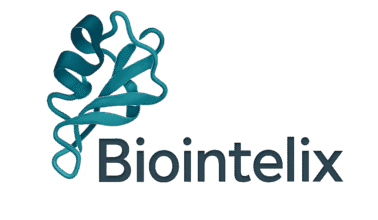AI Protein Structure Prediction and Its Role in Modern Drug Discovery
Artificial intelligence (AI) is rapidly reshaping the way we understand biological systems. One of the most transformative applications has been in protein structure prediction, where algorithms now achieve accuracy once thought impossible. From deep learning models like AlphaFold to innovative custom pipelines, AI protein structure prediction is accelerating drug discovery, vaccine design, and antibody engineering.
👉 For researchers and companies needing accurate, high-quality 3D modeling, our Protein Structure Prediction Services provide expert-guided solutions that go beyond public AI tools.
Why AI Is Revolutionizing Protein Structure Prediction
The challenge of protein folding
Predicting how a protein folds from its amino acid sequence has been one of biology’s toughest challenges. Traditional methods like X-ray crystallography and cryo-EM are accurate but time-consuming, expensive, and resource-intensive.
AI breakthroughs in protein modeling
With the release of AlphaFold by DeepMind and RoseTTAFold, the field has shifted dramatically. These AI-driven models can predict structures with near-experimental accuracy for many proteins, unlocking massive potential for:
- Drug target identification
- Vaccine antigen design
- Enzyme engineering
Applications of AI Protein Structure Prediction in Biomedicine
Drug discovery acceleration
AI models allow pharmaceutical researchers to quickly generate structural models for target proteins, enabling faster docking studies and hit-to-lead optimization.
Vaccine design
In vaccine R&D, AI-generated structural insights help identify conformational epitopes and improve antigen design strategies. This reduces time from concept to candidate vaccine.
Antibody engineering
AI protein modeling is also essential in antibody discovery. By predicting antibody-antigen interactions, researchers can refine binding affinities and stability. For tailored support, explore our Antibody Structure Prediction Services.
Limitations of AI Protein Structure Prediction
While AI tools are powerful, they are not flawless. Challenges include:
- Lower accuracy for membrane proteins and disordered regions
- Limited ability to model protein–protein or protein–ligand interactions without refinement
- Requirement of expert interpretation to ensure biological relevance
This is why many organizations combine AI-generated models with expert-guided refinement, molecular docking, and simulation — ensuring actionable results.
Why Choose Expert Services Over DIY AI Tools
While anyone can run AlphaFold, reliable predictions require domain expertise, validation, and custom refinement workflows. Expert-guided services ensure models are not just computational predictions but research-grade, publication-ready structures.
👉 If your project demands high-quality, validated models, explore our Protein Structure Prediction Services.
Future of AI in Protein Structure Prediction
As AI continues to evolve, we can expect:
- Integration with molecular dynamics for dynamic simulations
- Improved antibody–antigen prediction for therapeutic design
- Automated pipelines that link protein structure prediction directly with drug screening
The convergence of AI, structural biology, and computational chemistry will continue to push the boundaries of biomedical innovation.
Conclusion
AI protein structure prediction is transforming the way we approach biology and medicine. From drug discovery to vaccine development, it provides unprecedented opportunities — but expert refinement and validation remain critical for success.
👉 Ready to accelerate your research with reliable results?
Check out our Protein Structure Prediction Services and Antibody Structure Prediction Services today.
Jumper, J. et al. (2021). Highly accurate protein structure prediction with AlphaFold. Nature, 596, 583–589. https://www.nature.com/articles/s41586-021-03819-2
Baek, M. et al. (2021). Accurate prediction of protein structures and interactions using a three-track neural network. Science, 373(6557), 871–876. https://doi.org/10.1126/science.abj8754
Callaway, E. (2020). ‘It will change everything’: DeepMind’s AI makes gigantic leap in solving protein structures. Nature News. https://www.nature.com/articles/d41586-020-03348-4
